Whether kids go to school or study remotely they experience anxiety, confusion, lack of motivation and uncertainty about the future.
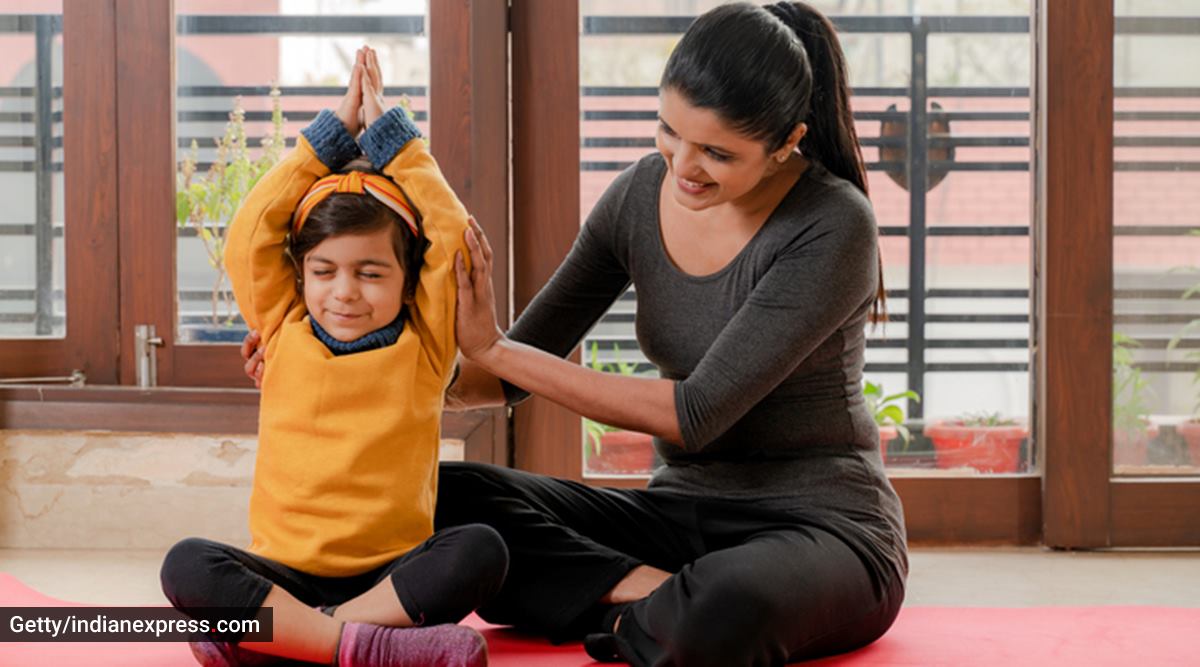
By Sabrina Merchant
Do you know what the priority is of many school boards around the globe this year? It’s not the new math curriculum and it’s not literacy, it’s students’ mental health and well-being! As a kids’ yoga teacher, I can see how hard it is for them to deal with the current challenges. Whether kids go to school or study remotely, they experience anxiety, confusion, lack of motivation and uncertainty about the future. These, in turn, manifest into the physical symptoms such as sleep issues, difficulty concentrating, lack of movement, eating disorders and more.
How can we help kids face all these challenges and take care of themselves, self-regulate, be healthier and do better at school? The pandemic has taught parents and teachers, how important it is to hone a hobby by exposing kids to various extra curricular activities. A hobby in the form of art, craft, music, yoga etc., in today’s world can also be a full fledged profession.
We all know how beneficial yoga and mindfulness are. We can teach mindfulness practices, tools and techniques to support kids in their everyday life at home and in school.
Lotus Pose/ Padmasana
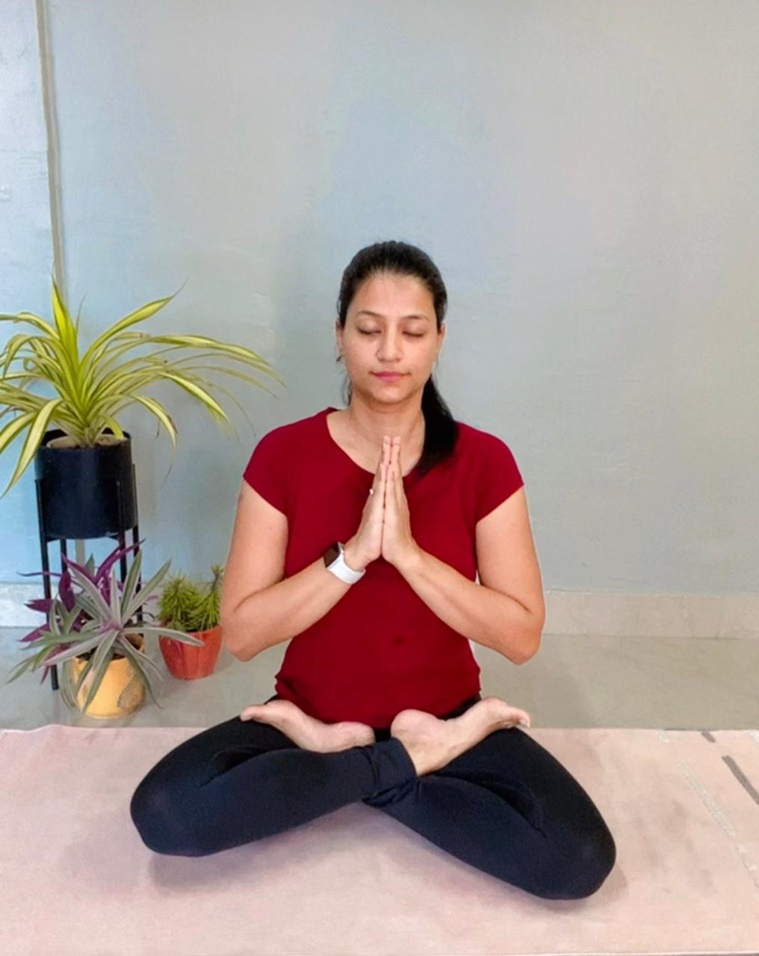
Start your morning with this yoga posture which helps deepen meditation by calming the mind and alleviating various physical ailments. Here’s how to do the pose:
*Sit on the floor or on a mat with legs stretched out in front of you while keeping the spine erect.
*Bend the right knee and place it on the left thigh. Make sure that the sole of the feet point upward and the heel is close to the abdomen.
*Now, repeat the same step with the other leg.
*With both the legs crossed and feet placed on opposite thighs, bring your palms together towards the centre of your chest.
*Keep the head straight, spine erect and eyes closed.
*Hold and continue with gentle long breaths in and out.
Benefits:
*Calms
*Improves awareness and focus
*Improves digestion
*Stretches the knees and ankles
*Strengthens the spine, abdomen, pelvis, bladder
Child Pose/Balasana
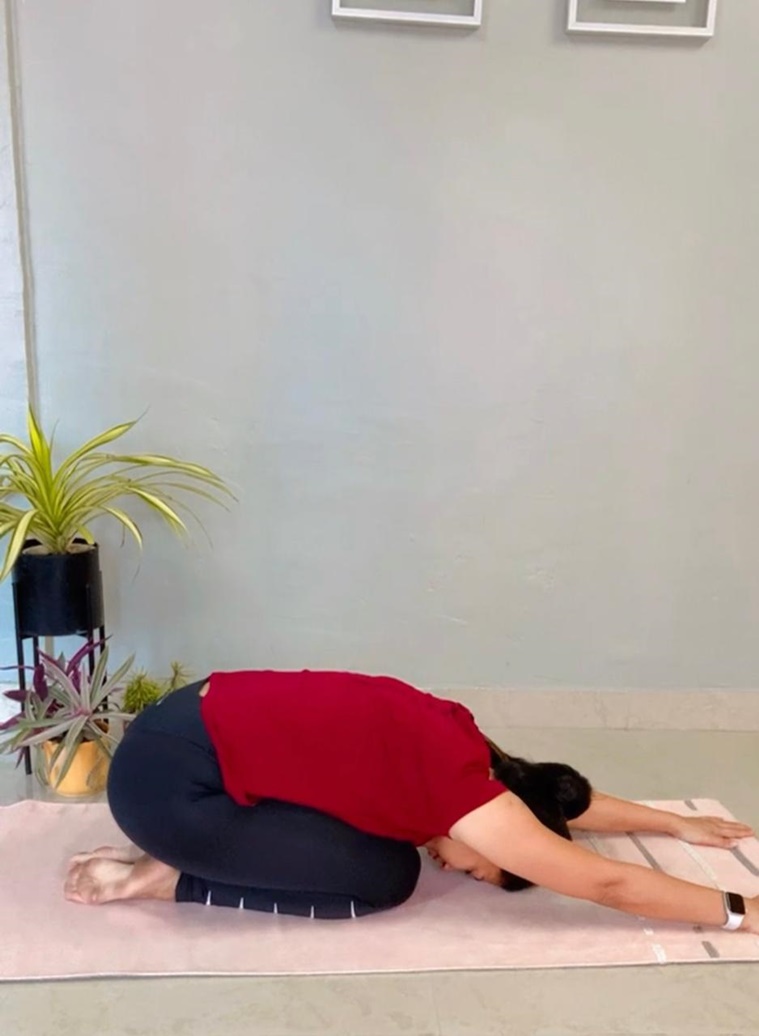
Child’s Pose can serve as an opportunity to rest between more challenging poses, or it can be practised any for calm and focus.
Here’s how to do the pose:
*Kneel on floor and sit back on your heels.
*Bend forward to rest your forehead gently on the floor.
*Relax your arms in front of you, palms down.
*Imagine you are a hippo in water.
*Close your eyes and relax your body for several breaths.
Benefits:
*Calms
*Restores
*Stretches
Ant Pose/Baddha Konasana(variation)
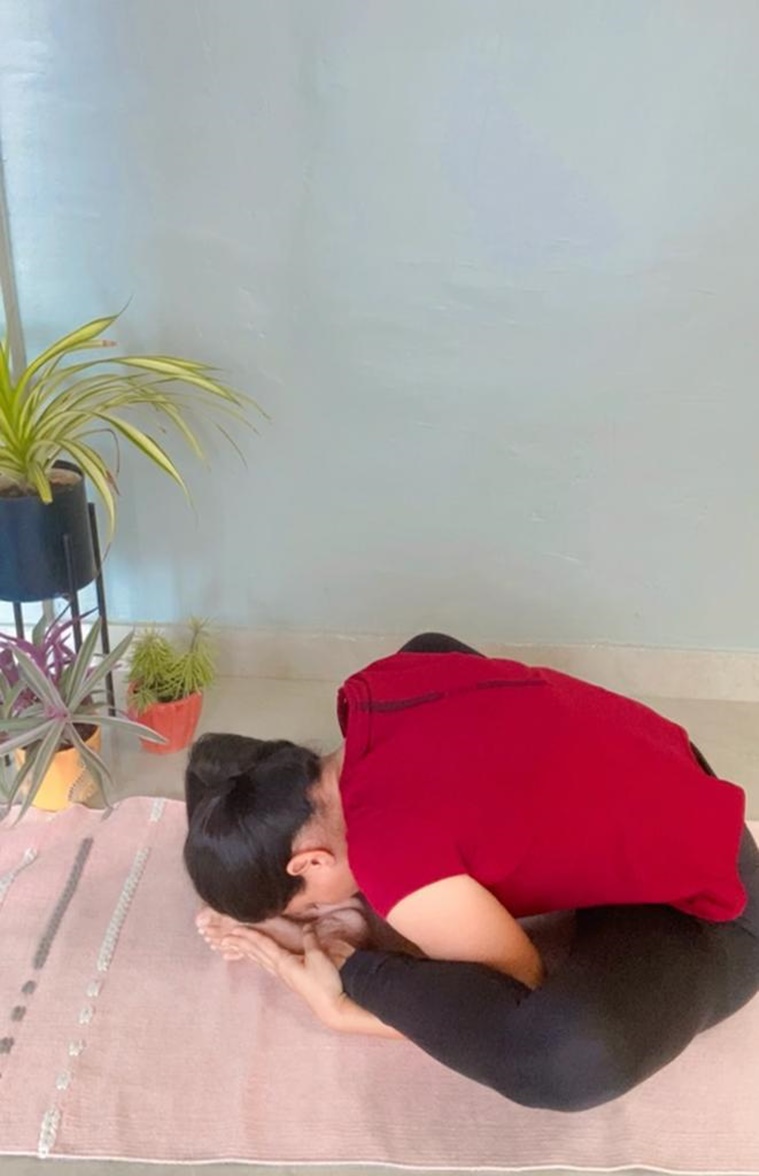
How to do the pose:
*Sit up tall and bring the bottoms of your feet together.
*Lift your hands and raise your arms and join your palms above your head.
*Now thread your hands down under your leg and hold your toes. Bring your knees down and slowly fold forward to touch your forehead to your toes.
*Hold for 3-4 breaths.
*When you are ready to release the pose, slowly first unthread the hands and then sit up to come to start position.
Benefits:
*Aids in calming emotions.
*Relaxes the nervous system.
Vajrasana (The Thunderbolt Pose)
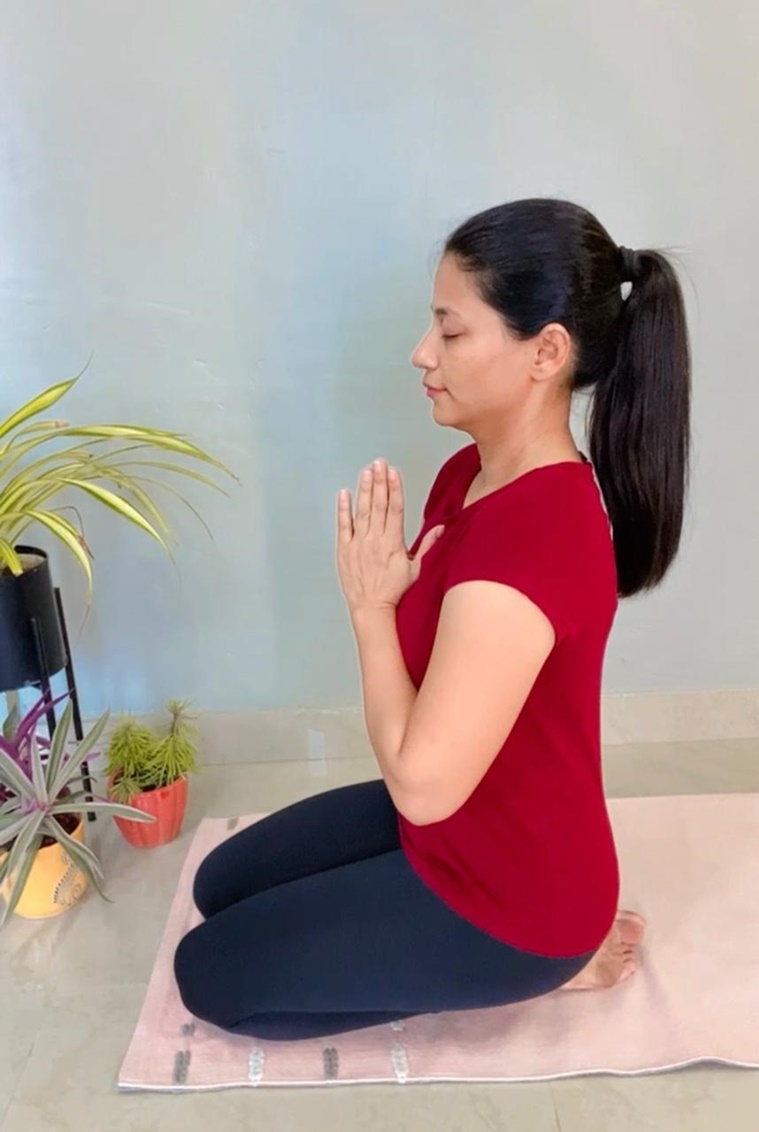
Vajrasana is a sitting posture. Here’s how to do the pose:
*Stand on the knees with the lower legs together and stretched backwards, the two big toes crossing each other.
*Lower your body and sit on your heels. Your buttocks will be resting on the heels and the thighs on the calf muscles.
*Keep your hands on your knees or close to your heart and keep the head straight.
*Concentrate on the breath and observe the process of inhalation and exhalation.
*One may close the eyes, to get good concentration and to calm the mind.
*Remain in this position for at least 3-5 minutes.
Benefits:
*It is a good meditative pose
*Slow and rhythmic breathing in Vajrasana can induce a meditative state.
*It increases the efficiency of the digestive system and helps those with weak digestion to digest a full meal easily.
*It helps to prevent acidity and ulcers by improving digestion.
Wide-Legged Forward Bend pose /Prasarita Padottanasana
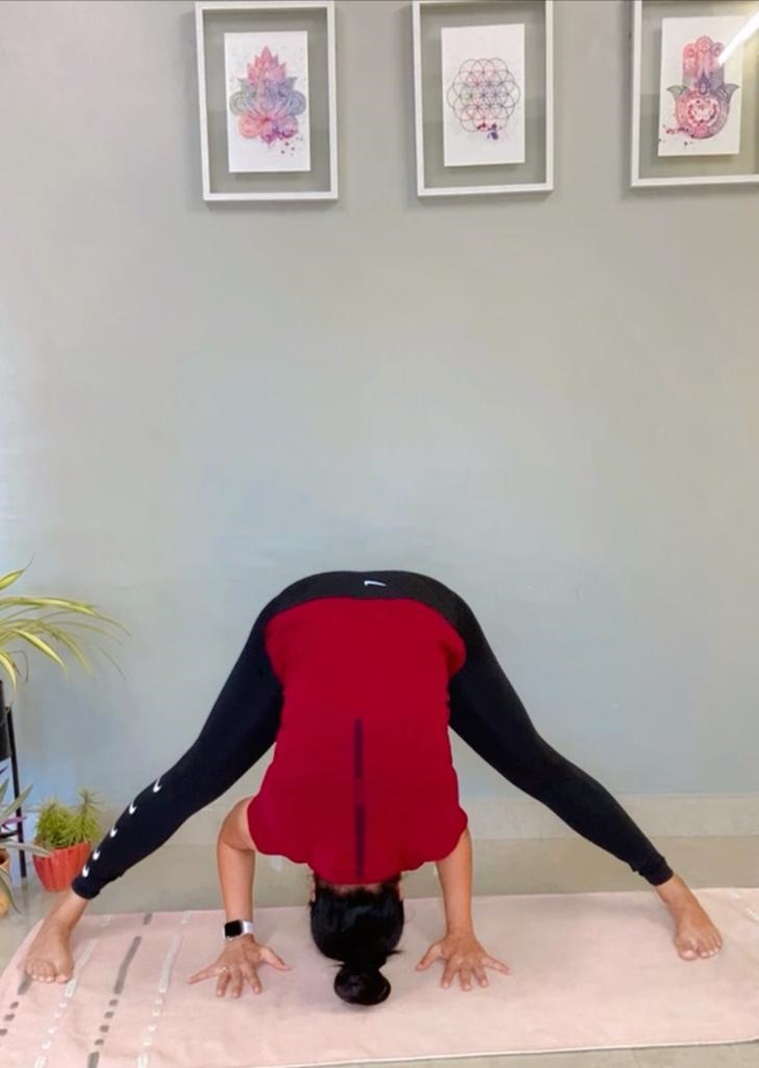
How to do the pose:
*Start by standing with your legs 3-4 feet apart. Folding forward bringing the palms to the floor under the shoulders.
*Use the arms to pull the forehead down towards the floor, bending the elbows towards the back wall. Press into the feet, lengthening the legs to press the hips up toward the ceiling.
*Feel the spine being pulled in opposite directions as you press the head down and lift the hips up.
*Breathe and hold for 3-8 breaths.
*To release, reach the arms out to the sides and come back up into the start position.
Benefits:
*Lengthens the spinal column.
*Stretches the backs of the legs.
*Strengthens the back muscles.
For all the latest Parenting News, download Indian Express App.
Source: Read Full Article
